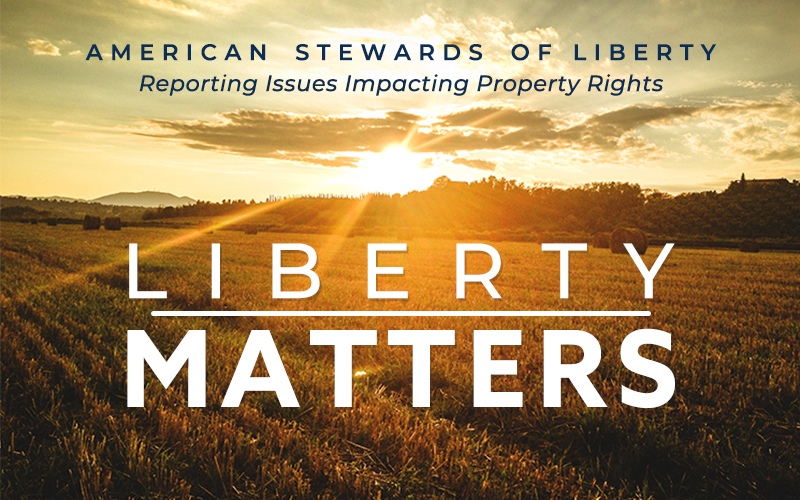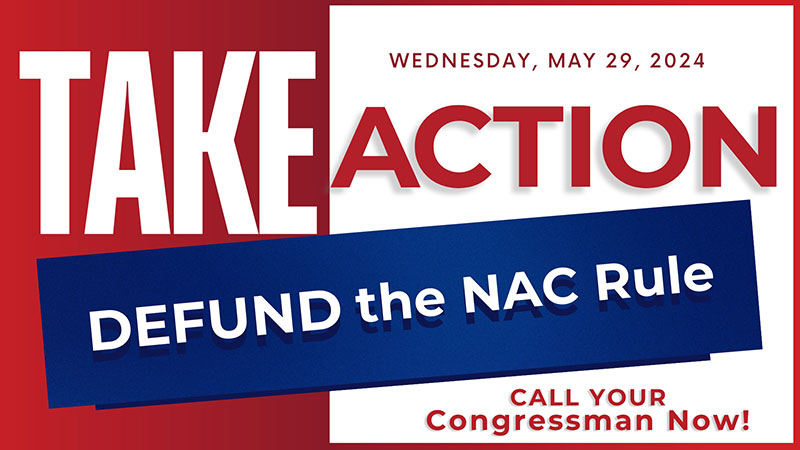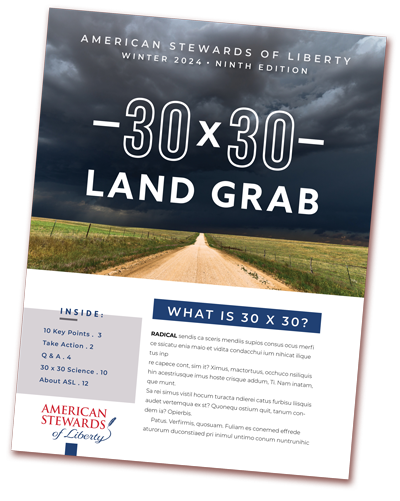On January 9, 2024, Attorneys General for 25 states filed public comments to the Securities and Exchange Commission (SEC) opposing the proposed rule to create Natural Asset Companies. You can read their letter here.
This is a major shift against and strong condemnation of the New York Stock Exchange (NYSE) and Intrinsic Exchange Group’s (IEG) attempt to create a nefarious investment vehicle “designed to take land off the market to prohibit productive economic uses,” stated Utah Attorney General Sean D. Reyes.
General Reyes, along with the other 24 Attorneys General filed extensive comments beginning with how the proposed rule change runs contrary to the very authority the NYSE cites in support of its proposed rule change, concluding the rule should be disapproved.
“Beyond being unlawful, the NYSE’s proposal is bad policy that will harm the economy and endanger our national security. It facilitates another agency’s violations of the law. It will enable private entities to lock up public lands in perpetuity, eliminating access to such lands for recreational purposes and essential economic activities. It will enable foreign actors—some of whom may have goals directly contrary to America’s national security interests—to gain perpetual control over public lands and close off desperately needed natural resource development. And it fails to protect investors by blessing an unproven, proprietary reporting framework that will confuse investors and distract attention from the unprofitability of NACs while simultaneously lining the pockets of IEG and the NYSE.”
In their comments, they point out that the Rockefeller Foundation, “which frequently donates significant sums to or otherwise supports left-wing entities,” alone granted $750,000 to IEG in 2019 and $1 million to IEG in 2021 to create Natural Asset Companies (NACs).
They argue that NACs are not listed as a type of company under the current NYSE’s Manual Section 102.00, therefore, if enacted the NYSE would “subordinate the interests of millions of Americans to the aims of environmental activists as well as to [the] United Nations policies and mandates”…in violation of the “text and purposes of federal securities laws, the Administrative Procedure Act, and the U.S. Constitution.”
They also state that the rule “plainly is intended to serve as the funding mechanism for the Bureau of Land Management’s (BLM) recent proposed rule granting ‘conservation leases’ for public lands. The BLM rule would prevent all multiple uses, such as grazing, logging, or mining unless they are “consistent” with the lease’s environmental purposes. The AGs clearly understand the BLM rule change “is an astonishing attempt to create agency authority where none exists.”
And they understand that the BLM rule is where the value for these “conservation leases” will come from. The rule restricts productive economic uses on federal lands by granting conservation leases, but only a NAC would sink money into these leases because that is their purpose.
“By authorizing the NYSE to list NACs on its exchange, the proposed rule provides a mechanism for companies whose purpose is not to make money, but instead to lock up land to prohibit productive economic uses thereof, to find investors and capital so they can obtain conservation leases and other ‘ecological performance rights’… in unison with the BLM rule.”
The Attorneys General also discuss how the proposed rule exceeds the SEC’s statutory authority because it does not protect investors and the public interest, and it’s designed to regulate matters unrelated to the purposes of the Exchange Act.
They also dive into an issue described as the “major questions doctrine” as decided in the Supreme Court decision West Virginia v. E.P.A. “The SEC and the NYSE are seeking to implement a radical environmental agenda through the rulemaking process outside the legislative process and it simply must be approved by Congress or explicitly authorized by statute” – neither exists.
The letter was co-led by the State of Kansas and joined by the States of Alabama, Alaska, Arkansas, Florida, Idaho, Indiana, Iowa, Kentucky, Louisiana, Mississippi, Missouri, Montana, Nebraska, New Hampshire, North Dakota, Ohio, Oklahoma, South Carolina, Tennessee, Texas, Virginia, West Virginia, and Wyoming.





